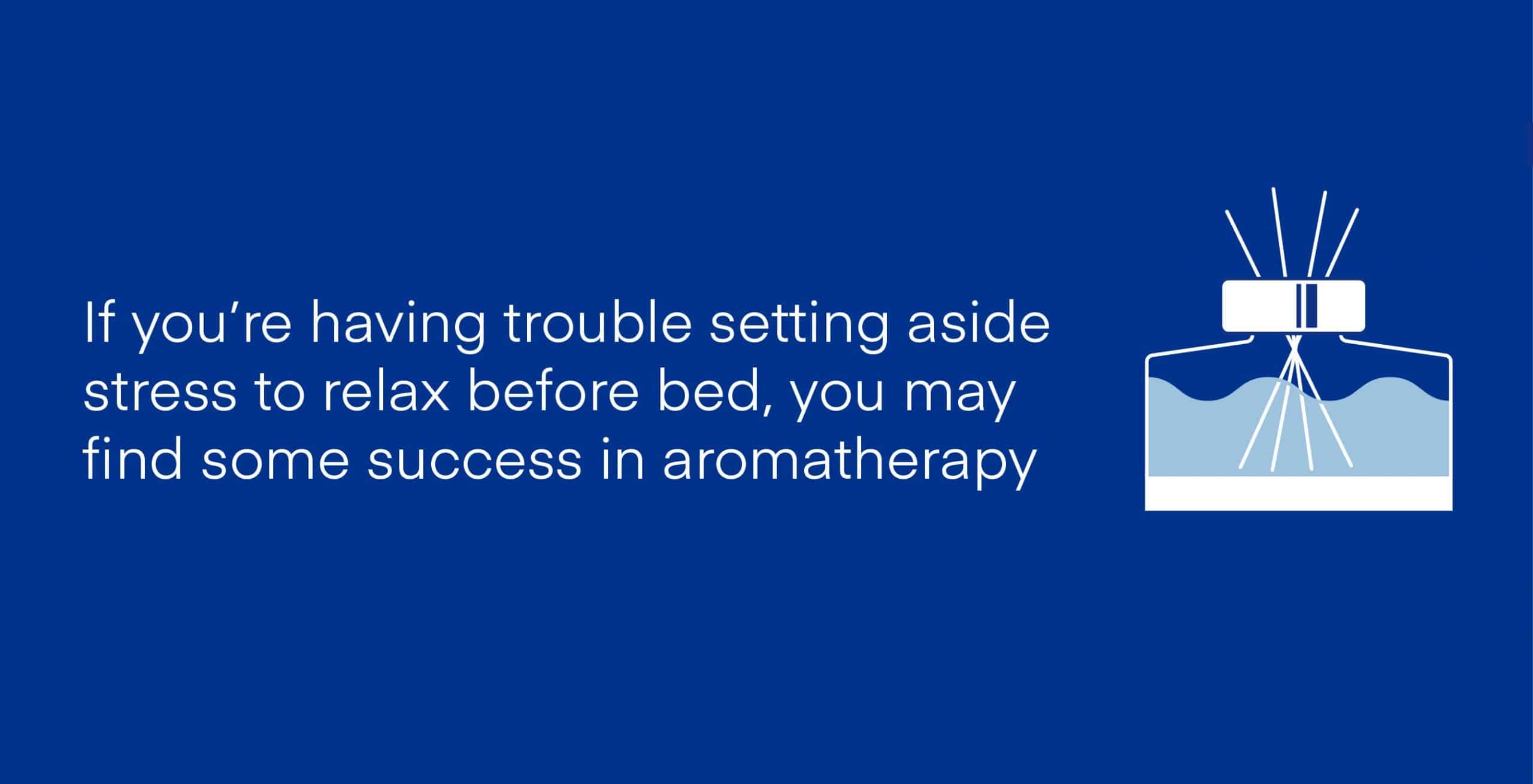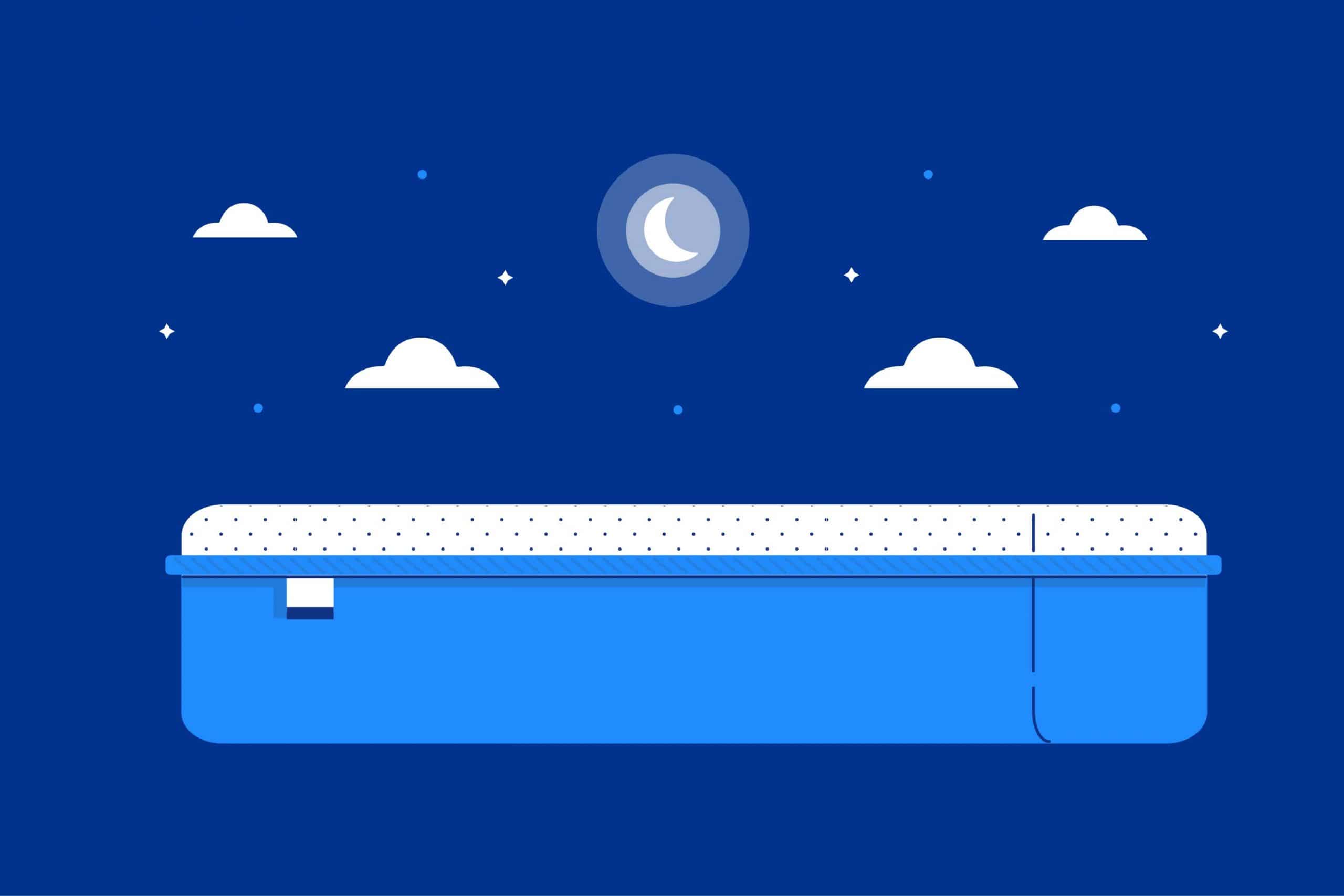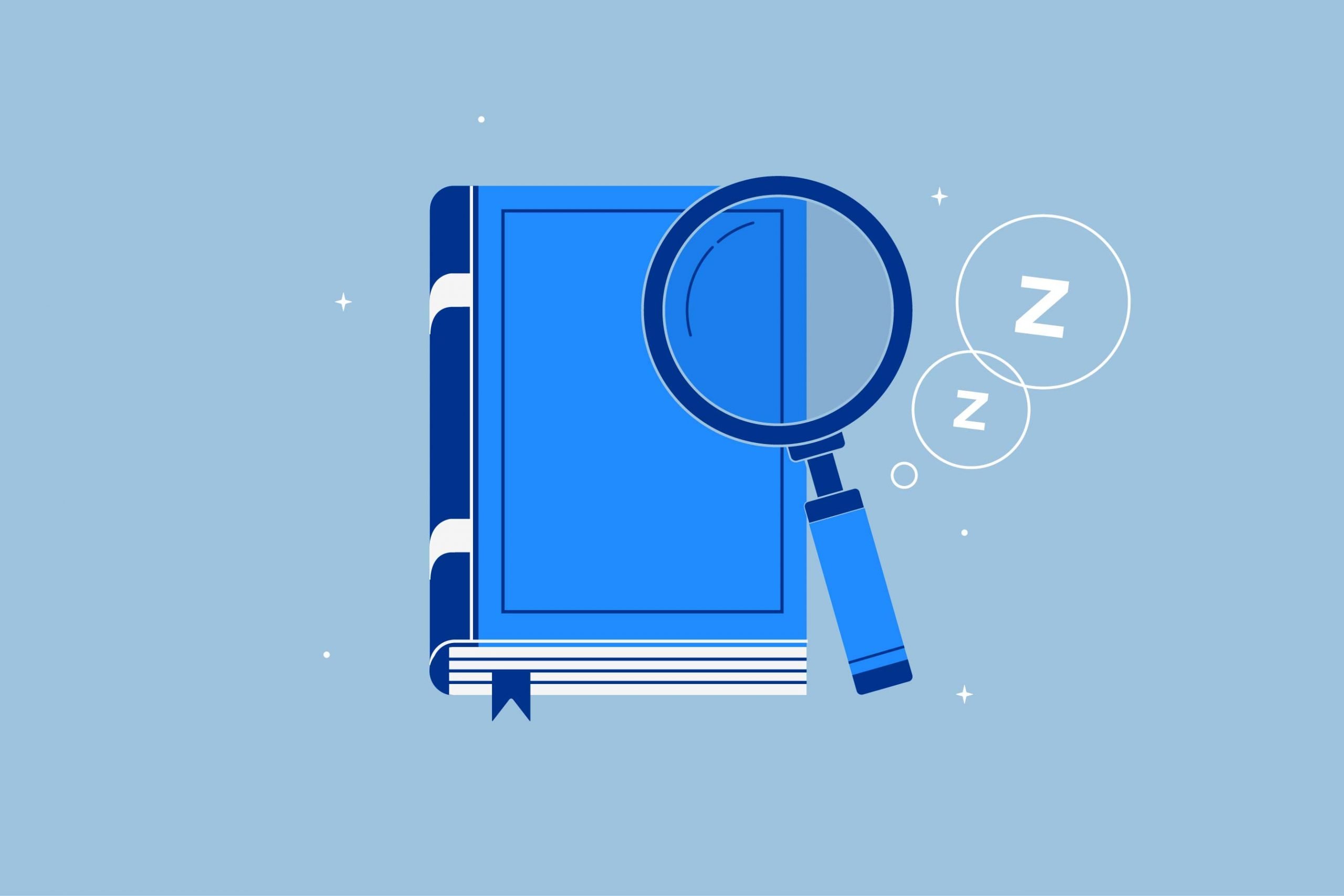Key Takeaways
- Consistent Schedules Can Improve Sleep: Establishing a consistent sleep schedule and bedtime routine can significantly improve sleep quality by regulating the body’s internal clock and preparing the mind for rest. Avoiding electronic devices and caffeine several hours before bedtime, as well as keeping the bedroom cool and comfortable, can further enhance the ability to fall asleep and stay asleep throughout the night.
- Unwind Before Bed: Incorporating regular exercise, practicing light stretching, and taking a warm bath before bed can help relax the body and promote better sleep. Aromatherapy with essential oils, limiting daytime naps, and being mindful of dietary choices can all play a role in facilitating a good night’s sleep.
- Avoid Things That Interfere with Sleep: Avoiding heavy meals before bedtime and choosing foods that promote sleep, such as those containing tryptophan and fiber, can aid in promoting a healthier sleep pattern. Using breathable bedding and considering the quality of the mattress and pillow can also contribute to a more comfortable and conducive sleep environment.
If sleeping through the night feels like an impossible task, you’re not alone— the CDC says Verified Source Centers for Disease Control and Prevention (CDC) The United States’ health protection agency that defends against dangers to health and safety. View source over 30 percent of adults struggle with sleeplessness. And the causes of sleep deprivation vary, as many attribute their poor sleeping habits to stress, while some blame disruptive sounds outside the bedroom, and others have to accommodate irregular sleep schedules from shift work.
When it seems like there are countless factors working against a good night’s sleep, it can be difficult to stop the tossing and turning and get peaceful rest. But don’t worry, there are simple steps you can take as soon as today to start getting better sleep tonight.
In our article, we share 13 tips to sleep better at night, including creating a bedtime routine, exercising regularly, and using breathable bedding. Let’s get started.
1. Turn Off Electronic Devices
First, it goes without saying, light impedes sleep. Nobody wants to fall asleep in a bright room or with a screen glaring in their eyes. There’s a real science to light hindering sleep, too.
The presence of sunlight, blue light, or really any light source, impacts your circadian rhythm (also known as your sleep-wake cycle). Your brain interprets light in your environment as a signal to stay active, and as a result, it suppresses melatonin, the sleep hormone. When there’s little to no light, or dim lights, the brain is able to continue with the increased levels of melatonin production in the evening and prepares for sleep.
To prevent your devices from harming your sleep patterns, we suggest turning them to Night Mode in the evenings. Or better yet, don’t use them at all 2-3 hours before bed. If you watch television before bed, turn down the brightness, and turn off any bright overhead lights in your living space. Creating a relaxing environment helps you unwind and better prepare for sleep.
2. Avoid Caffeine During the 6 to 7 Hours Before Sleep
Caffeine is a stimulant that works to keep you awake, not promote sleep. Energy drinks, soda, coffee, green tea, and other caffeinated beverages should be avoided in the afternoons and evenings—or, if you’re a shift worker, in the 6 to 7 hours leading up to bedtime—since it can stay in your system for nearly half of a day.
Look out for sneaky sources of caffeine, too, as chocolates and other sweet treats can sometimes cause an energy spike and influence your sleep at night. To play it safe, we suggest light, healthy foods and decaf beverages in the second half of your day as you prepare for sleep.
3. Set a Sleep Schedule
Another easy way to get yourself into the habit of falling asleep (and staying asleep) night after night is to set a consistent sleep schedule for yourself. Our circadian rhythm operates most smoothly when it follows a clear routine—going to bed and waking up at different times each day confuses our body and prevents us from ever establishing a real sleep schedule. In turn, this makes it harder to achieve quality sleep.
Following a strict bedtime and wake-up routine, even on the weekends and days you just want to kick back in bed, keeps your sleep-wake cycle working how it should and prevents sleep difficulties.
4. Establish a Regular Bedtime Routine
And to backpack on our last recommendation, we suggest reinforcing a regular sleep schedule with a regular bedtime routine and good sleep hygiene habits. Take the last hour or so in the evenings before bed to de-stress and prepare yourself for sleep. Put away technology, set aside thoughts of work and other responsibilities, and use this time to accomplish a few things for you and your sleep health.
Whether you prefer to take a bath and journal before bed, or squeeze in some gentle stretching and a shower before sleeping, following the same bedtime routine night-after-night trains your brain to prepare for sleep at the same time every day. Eventually, you’ll be feeling drowsy and yawning before your head even hits your pillow.
5. Keep Your Bedroom Cool
Night sweats and overheating during sleep are bothersome to many, and even if you don’t struggle with night sweats, warm climates and hot bedsheets can make cool, comfy sleep a challenge. You can counter night sweats with a bedroom fan or a good A/C system—we just suggest shooting for a bedroom temperature between 60 and 67 degrees Fahrenheit. Temperatures below 54 and above 75 are too cold and too hot for sleep, but temperatures in the 60-degree range are usually just right.
6. Incorporate Foods for Sleep During Dinnertime
Just like there are foods to avoid before bedtime, there are sleep-enhancing foods you can try to help you get better rest. Turkey, salmon, leafy greens, white rice, and whole grains are all known to promote more peaceful shut-eye. Alternatively, big, heavy meals, greasy foods, and sugary desserts can cause indigestion and make sleep difficult.
To reap the benefits of these foods, we recommend planning dinners at least three hours before sleep, as this allows plenty of time for digestion. Do your best to limit late-night snacking, but if you find your stomach growling before bed, stick to light and healthy options like cheese and crackers or apple slices with peanut butter—these small bites contain nutrients like tryptophan and fiber Verified Source National Library of Medicine (NIH) World’s largest medical library, making biomedical data and information more accessible. View source to help sleep come more easily.
7. Take a Warm Bath (or Shower) Before Bed
Showering before bed can be helpful to sleep for a couple of reasons. One, most people want to climb into bed after a long day feeling fresh and clean. Washing away the day helps you relax and prepare to drift off to sleep. Two, the act of spiking your internal temperature in a hot shower or bath actually facilitates the cool-down process necessary to fall asleep fast.
So, if you want to fall asleep faster, jump in a hot shower and then tuck away into bed—your body will feel relaxed and your core temperature will slowly drop until the lowest point needed for deep, slow-wave sleep.
8. Use Breathable Bedding
Using breathable bedding works to keep your body temperature regulated during the night, preventing you from waking up either too hot or too cold.
“Tips for facilitating sleep at night include taking a hot shower, or ensuring a comfortable room temperature, more on the cooler side,” explains Dr. Nayantara Santhi. “Our circadian clock regulates core body temperature such that it begins to decline before sleep, decreasing further as we enter NREM sleep.”
“Because we lose heat through skin, our skin temperature rises as the core body temperature declines at night. That is why skin warming is effective for inducing sleep. Equally effective is cooling our bedroom since we naturally tend to go to sleep after sunset, the cooler part of the day.”
Cotton is a wonderful year-round fabric, as it is insulative enough to keep you cozy during cold months yet lightweight enough to prevent heat retention in the summer. That said, Tencel, linen, and bamboo are other breathable bedding options worth considering.
Of course, we suggest our Amerisleep bed sheets for sleepers, as we craft these sheets with high-quality fabrics to maintain comfort through every season.
Quick Guide: A 30-Second Summary
| Best Cooling Tencel Sheets | Amerisleep Tencel Sheets |
| Best Cooling Bamboo Sheets | Amerisleep Bamboo Sheets |
9. Incorporate Exercise Into Your Day-to-Day
Exercising, obviously, is vital to good health, but a daily workout can also help you sleep better, too. Getting your heart pumping and body moving tires your body out and releases endorphins or “feel-good” hormones. Promoting good health with a consistent workout regimen regulates hormone production and internal processes to reduce insomnia and anxiety and bolster a healthy circadian rhythm.
As a result, sleepers who use exercise to improve shut-eye drift off faster, wake up during the night less often, and all in all, sleep longer and better. Plus, exercising outside in the sun improves the natural sleep-wake cycle and helps you to feel more alert post-exercise.
10. Try Aromatherapy With Essential Oils for Sleep

If you’re having trouble setting aside stress to relax before bed, you may find some success in aromatherapy. Diffusing essential oils for sleep in your bedroom or living area fills the room with peaceful scents and puts you in the headspace to chill out and calm down. Certain scents, like lavender and jasmine, are thought to be better for promoting sleep onset than others, but you can try a variety of essential oils for sleep and mix up scents as you go.
11. Practice Light Stretching Before Bed
Another way to distract yourself from the stress of being unable to fall asleep and focus your energies on preparing for bedtime is to incorporate a gentle stretching routine into your evenings. Even just five minutes of light stretching can activate the parasympathetic nervous system (a.k.a. the rest and digest functions) and limit cortisol (also known as the stress hormone) production, and this ultimately prepares your mind and body for rest.
12. Limit Daytime Naps
It’s probably a no-brainer that daytime naps can limit nighttime sleep, so if you’re a napper and you struggle to get good sleep at night, the first step is to cut the daytime sleep. And, if you really need to take a quick break to snooze mid-day, plan your naps six or seven hours before sleep and limit them to 20 or 30 minutes. Earlier power naps have less impact on your sleep at night, but ideally, they should be avoided while you’re working to improve your nighttime sleep routine.
13. Consider Your Mattress and Pillow
Lastly, consider the mattress and pillow you’re using and whether they’re helping you get good sleep or making comfortable rest harder. Your mattress shouldn’t feel lumpy or cause sinkage, but instead, support you in a healthy position and ease pressure points. Likewise, a good pillow supports your neck in a straight position and prevents kinks and pains.
If your current mattress or pillow isn’t cutting it in terms of comfort, you’re better off investing in a new, more compatible sleep system than frustrating yourself with alternative sleep remedies. To compare top mattresses and upgrade to the best bed for your sleep needs, check out our best mattress buyer’s guide.
FAQs
Which foods help you sleep better at night?
Some of our favorite foods for better sleep include almonds (and other tree nuts) and seeds, fatty fish and lean meats like chicken and turkey, whole grain pastas, and dairy products like milk and cottage cheese. Some of these can double as light bedtime snacks, but other quick bites like kiwis and bananas can help sleep, too. Foods to avoid before sleep include red meats, sugary sweets, and spicy seasonings and condiments.
Can I force myself to fall asleep?
Technically, yes, but if you’re struggling to fall asleep, putting more pressure on yourself to drift off isn’t really the best idea. This just creates more stress and feelings of anxiety around falling asleep. And even though many feel like staying dedicated to the cause is necessary, pushing yourself to sleep isn’t likely to work.
Instead, if you’re feeling like you’re forcing yourself to sleep, we suggest getting up out of bed—distract yourself with a peaceful, quiet activity or grab a glass of water from the kitchen, and then, return to bed only when you’re feeling less anxious about winding down.
Why can’t I sleep even though I’m tired?
Even when our eyes are feeling tired and heavy, our brains can be active and alert. If you can’t quiet down your thoughts, you may find it hard to concentrate on sleep and lay awake thinking of the day’s events or tomorrow’s to-do’s. Shift work, jet lag, and irregular schedules can also lead to sleeplessness.
Establishing a steady sleep and evening routine, and practicing focusing on sleep in the hour or so leading up to your planned bedtime, helps you better manage stress and separate daily life activities from impacting your night’s sleep.
What is a sleep disorder?
A sleep disorder, as you may be able to infer from the name, is a disorder that prevents healthy, sound sleep. These are generally long-term, but there are instances of acute sleep disorders, as well. Some of the most common sleep disorders include insomnia, sleep apnea, Restless Leg Syndrome, narcolepsy, and REM Sleep Behavior Disorder.
Sleep disorders are different from parasomnias like sleep talking, sleepwalking, sleep paralysis, and night terrors, but parasomnias and sleep disorders can go hand-in-hand. These conditions often require the help of a sleep medicine specialist.
What is the best sleeping position?
There is no “best” sleeping position since side and back sleeping are both healthy in their own ways, and every sleeper has different needs, but we can say that stomach sleeping is the worst sleeping position. Why? It causes back pain, for one, and it’s also not healthy for your neck or overall sleep posture. If you’re looking to switch to a healthier sleep position, try back or side sleeping to see what feels best.
Conclusion
Good sleep isn’t completely unattainable, even if it seems like drifting off is the last thing you’re able to do at night. Instead of feeling frustrated or stressed about trouble falling asleep, take things day-by-day (or, night-by-night, rather) and try some of our tips for quality sleep in the evenings. Little by little, you should find yourself closer to getting good shut-eye.
Once you find a few tricks that work for you, you can build upon your improved sleep habits and consistently achieve the 7 to 9 hours of healthy rest you need every night. And of course, if sleeping troubles persist, you can always chat with your doctor or a sleep specialist about your symptoms. They’ll be able to help you chart the best course of action with personalized recommendations.
About the author
Geoff McKinnen is a writer focusing mainly on the healthcare industry and has written articles on everything from foods to help you lose weight to the connection between Alzheimer’s and sleep. Geoff’s passionate about helping readers improve their well-being to lead happier lives. Outside of work, Geoff enjoys cycling and hiking and believes that by leading a healthy lifestyle, he can help others do the same.
View all posts





